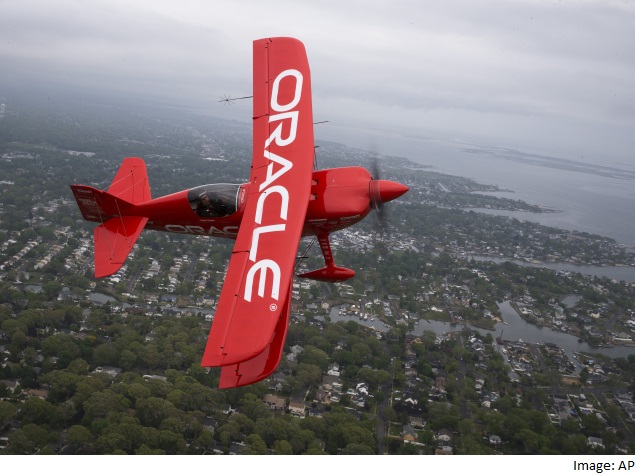- Home
- Wearables
- Wearables News
- US Supreme Court Declines to Hear Google Appeal in Oracle Java Fight
US Supreme Court Declines to Hear Google Appeal in Oracle Java Fight

The decision upholds a ruling that allows Oracle to seek licensing fees for the use of some of the Java language. Google had said it should be able to use Java without paying a fee.
The case involves how much copyright protection should extend to Java. Google, which used Java to design its Android smartphone operating system, said in court papers that an Oracle victory would obstruct "an enormous amount of innovation" because software developers would not be able to build freely on each others' work.
The litigation now returns to a San Francisco federal court for more proceedings on Google's separate "fair use" defense.
"We will continue to defend the interoperability that has fostered innovation and competition in the software industry," Google said in a statement on Monday.
Oracle, however, has said effective copyright protection is the key to software development. General Counsel Dorian Daley said on Monday that the Supreme Court decision was a "win for innovation."
Google's Android operating system is the world's best-selling smartphone platform. Oracle sued Google in 2010 and is seeking roughly $1 billion (roughly Rs. 6,376 crores) on its copyright claims.
The case examined whether application programming interfaces, which connect programs, can be copyrighted.
A San Francisco federal judge decided that the Java APIs replicated by Google were not subject to copyright protection and were free for all to use. But the U.S. Court of Appeals for the Federal Circuit reversed that last year, saying it was bound to respect copyright protection for software "until either the Supreme Court or Congress tells us otherwise."
Shares of Google were down about 1.1 percent at $525.74 in early trading, while Oracle was down about 0.6 percent at $40.74.
The Obama administration, which was asked to weigh in on the issue earlier this year, asked the Supreme Court not to take the case. The administration said the dispute had raised important concerns about the effect that enforcement of Oracle's copyright could have on software development, but said those issues could be addressed via Google's fair use defense.
The case is Google v. Oracle, U.S. Supreme Court, No. 14-410.
© Thomson Reuters 2015
Catch the latest from the Consumer Electronics Show on Gadgets 360, at our CES 2026 hub.
Related Stories
- Samsung Galaxy Unpacked 2025
- ChatGPT
- Redmi Note 14 Pro+
- iPhone 16
- Apple Vision Pro
- Oneplus 12
- OnePlus Nord CE 3 Lite 5G
- iPhone 13
- Xiaomi 14 Pro
- Oppo Find N3
- Tecno Spark Go (2023)
- Realme V30
- Best Phones Under 25000
- Samsung Galaxy S24 Series
- Cryptocurrency
- iQoo 12
- Samsung Galaxy S24 Ultra
- Giottus
- Samsung Galaxy Z Flip 5
- Apple 'Scary Fast'
- Housefull 5
- GoPro Hero 12 Black Review
- Invincible Season 2
- JioGlass
- HD Ready TV
- Laptop Under 50000
- Smartwatch Under 10000
- Latest Mobile Phones
- Compare Phones
- OPPO Reno 15 Pro Max
- Honor Win RT
- Honor Win
- Xiaomi 17 Ultra Leica Edition
- Xiaomi 17 Ultra
- Huawei Nova 15
- Huawei Nova 15 Pro
- Huawei Nova 15 Ultra
- Asus ProArt P16
- MacBook Pro 14-inch (M5, 2025)
- OPPO Pad Air 5
- Huawei MatePad 11.5 (2026)
- Xiaomi Watch 5
- Huawei Watch 10th Anniversary Edition
- Acerpure Nitro Z Series 100-inch QLED TV
- Samsung 43 Inch LED Ultra HD (4K) Smart TV (UA43UE81AFULXL)
- Asus ROG Ally
- Nintendo Switch Lite
- Haier 1.6 Ton 5 Star Inverter Split AC (HSU19G-MZAID5BN-INV)
- Haier 1.6 Ton 5 Star Inverter Split AC (HSU19G-MZAIM5BN-INV)

















